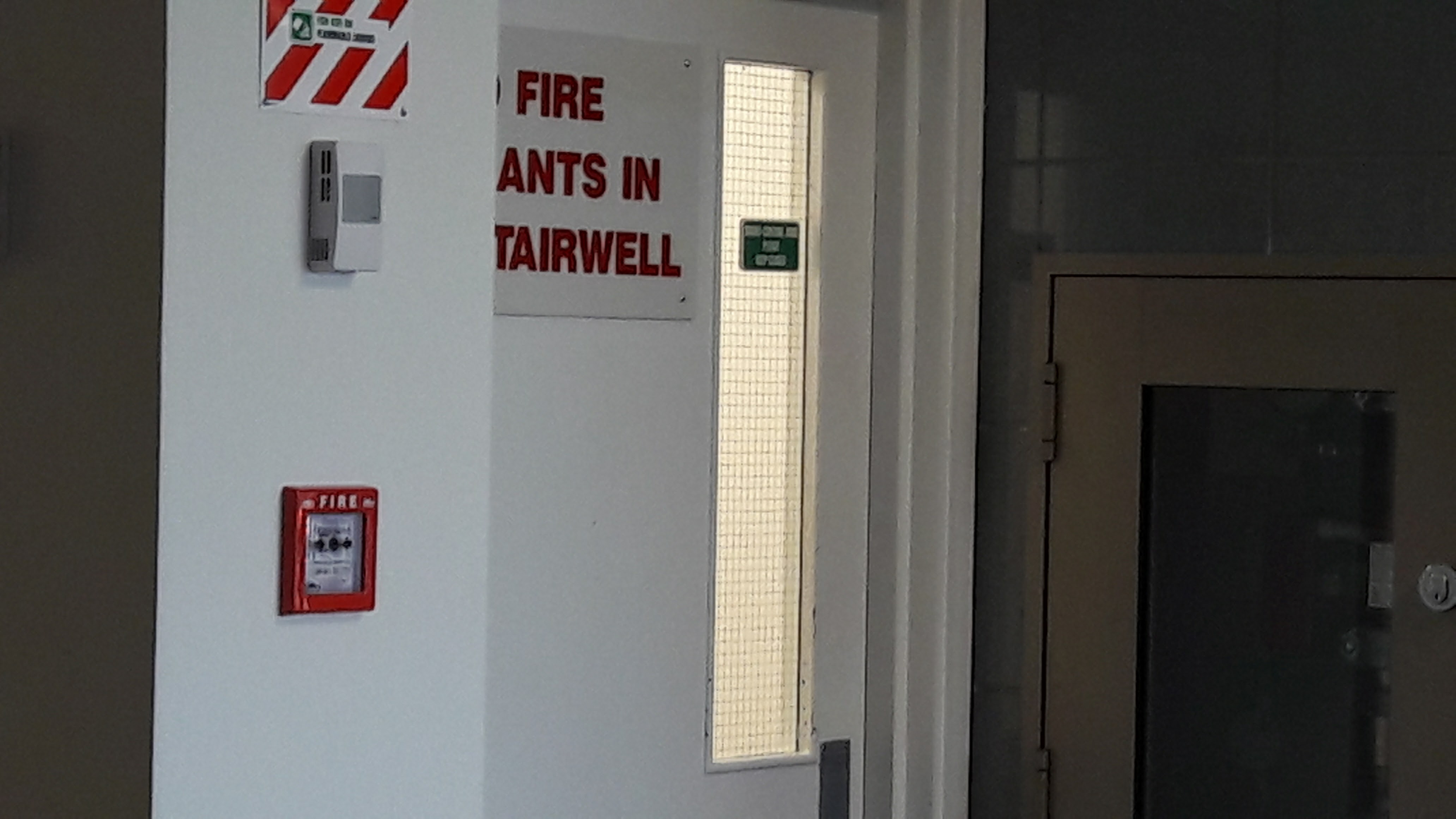Haven’t watched this one yet.
Originally shared by Larry Panozzo
Interesting point at the end. When the human brain is directly coupled with technology, we can ride the machine intelligence explosion instead of getting left in the dust.
Haven’t watched this one yet.
Originally shared by Larry Panozzo
Interesting point at the end. When the human brain is directly coupled with technology, we can ride the machine intelligence explosion instead of getting left in the dust.

This sign actually says “No fire hydrants in stairwell.” But from the right angle, it’s a lot more exciting.
It… actually looks like conspiracy theories are being spread by a conspiracy.
So much for using that as a wild story idea.
Originally shared by Yonatan Zunger
The dynamics of disinformation, propaganda, “fake news,” and conspiracy theories can be studied by watching how they spread. This is a summary of a scientific study (by one of its authors, who links the full paper) into this, and it’s chock-full of fascinating results. They focused on responses to mass shootings in particular, as these are a favorite target of conspiracy theories. Conspiracy stories, it turns out, spread with a very different pattern than other types of story – and botnets, quasi-replication of stories between sites, and similar patterns of signal manipulation are key to them. This (as well as other interesting commonalities between the sites which propagate these) suggests that there is something systematic and intentional behind these theories: they aren’t emerging organically, they’re being curated.
A probably overoptimistic, definitely starry-eyed view, but with plenty of story fodder.
Originally shared by Singularity Hub
The Rise of a New Species of Human Being
A well-executed MG novel with a New Zealand setting.
https://www.goodreads.com/review/show/1952091752?book_show_action=false&from_review_page=1

Early, crude experiments with integrating technology and biology.
Originally shared by Singularity Hub
The Weird World of Cyborg Animals Is Here http://bit.ly/2nfdEAB
This is a thoughtful and helpful response to a good question.
Originally shared by Brandon Sanderson
#FAQFriday
I just had a question about writing, specifically regarding your laws on magic. Your first law states that the ability to solve problems using magic is directly proportional to the reader’s knowledge of said magic. My question comes kind of as the opposite. What is your opinion on the ability of the author to create problems using magic? Does the reader need to know a lot about the magic system for you to be able to have the “villain” use it to create problems for the protagonists? Or can you create problems with this magic without the reader knowing a lot about it?
One thing to remember about my laws is that they’re laws I devised for myself–laws I find make my writing stronger. I think they hold very well in general, but there are no “rules” for fiction. There are as many ways to do things as there are people doing them.
However, like most things, I DO have an opinion. 🙂
Magic causing problems in the story is a great thing–as more conflict generally makes for a stronger story. Obviously, this isn’t a 100% correlation, but it’s a good rule of thumb. Using the magic as a kind of “human vs. nature” style plot is a great idea, and I’ve used it to great advantage myself. One could say that in Elantris, the magic (which is broken) is a primary antagonist of the story.
There are a few things to be aware of. First, avoid what my friend and colleague Bryce Moore dubbed “Deus Ex Wrench.” Yes, that doesn’t quite work. But the idea is this: Just like solving problems out of nowhere, with unforeshadowed powers or advantages, can be unsatisfying, sometimes just having problems happen out of nowhere in a story can be unsatisfying.
If a dam breaks, risking flooding the city, it’s much stronger if we know the dam is there–if the characters have walked along it, or if something similar happened somewhere else in the story in parallel. Likewise, having the magic create problems unexpectedly, if handled without some measure of foreshadowing, could be unsatisfying. (For example, if the One Ring suddenly started–three quarters of the way through the series–melting your friends if they crossed their eyes.)
Just as I think you can create a great magic system that doesn’t have explicit rules, I think you can have the magic be a huge problem in the books if the reader/characters don’t understand it. Doing so in this case is probably going to be about making sure that the major conflict is not FIXING the magic, but overcoming it.
For example, if the magic in your world–when used–causes rainfall that floods and kills crops, one story (the explicit rules story) would be about finding out why, and learning to use the magic safely. But another story would be about surviving a terrible flood, and another about hunting down and stopping the people who use the magic. All three can use the magic as a huge conflict, but only one would probably need deep explanation of the magic system in order to have a satisfying resolution.
Via a private share. This is an encouraging outcome.
Via a private share. Trade networks in the early Middle Ages were a lot more extensive than we often realise. Lapis lazuli from Afghanistan made its way to Ireland, for example, where it was used in some of the pages of the Book of Kells.

VR, like all new media, changes the kind of stories that are possible. And it appears to create a high degree of empathy, which is promising.
Originally shared by Singularity Hub
The Power of VR as an ‘Empathy Machine’ and Office Holodeck http://bit.ly/2mpKXnx